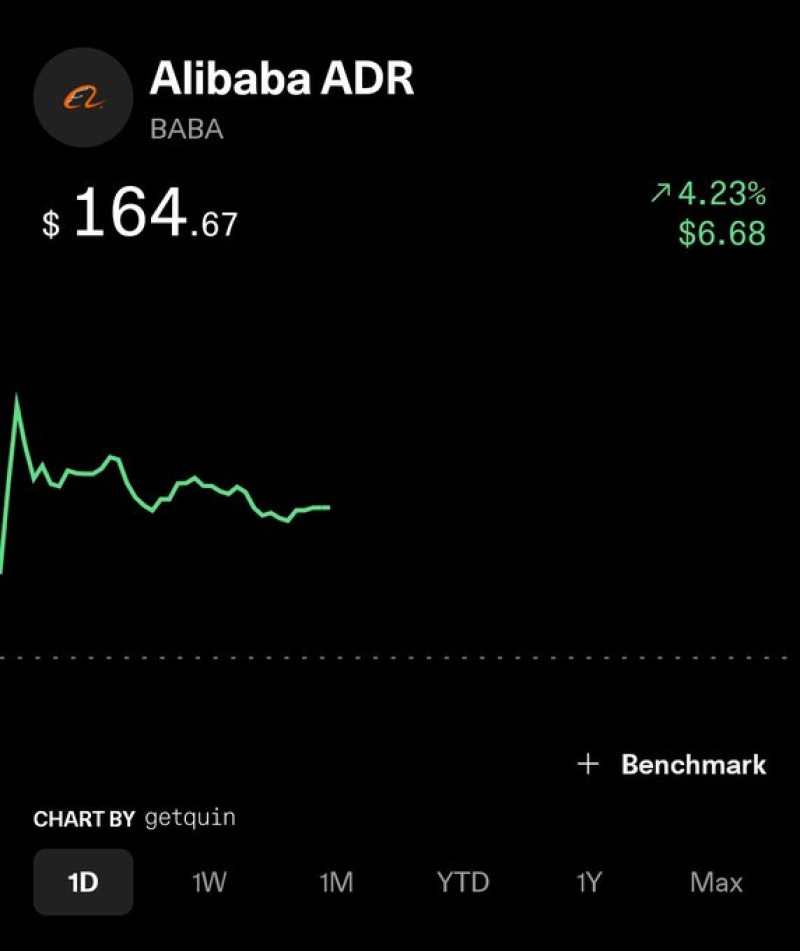⬤ Alibaba surged more than 4% in pre-market trading to $164.67 after announcing a major overhaul of its Qwen AI app. The company plans to evolve Qwen beyond a standard language model into a fully autonomous AI agent that can handle complex tasks across commerce, logistics, enterprise operations, and productivity workflows. This strategic shift signals Alibaba's determination to compete head-on with ChatGPT and other leading AI platforms in the global market.

⬤ The timing comes as policymakers debate tax reforms that could significantly impact tech companies pursuing AI development. Proposed changes include higher corporate taxes on AI-focused businesses, reduced R&D tax credits, and stricter regulations around AI data infrastructure. Smaller companies face potential bankruptcy risks from increased tax burdens, while even giants like Alibaba could struggle with talent retention if equity compensation faces heavier taxation. These regulatory uncertainties arrive just as Alibaba ramps up its AI investments.
⬤ The announcement confirms Alibaba's goal to make Qwen "a fully functioning AI agent," positioning the company at the forefront of the AI race. This transformation represents a fundamental shift in how Alibaba approaches artificial intelligence across its entire technology ecosystem.
⬤ The strong market reaction highlights how critical AI has become to Alibaba's future and to investor sentiment around Chinese tech stocks. By pushing Qwen toward full autonomy, Alibaba is betting its next growth phase on deep AI integration throughout its platforms. As tax policy debates continue, this AI pivot marks a pivotal moment for the company's competitive positioning in the global technology landscape.
 Peter Smith
Peter Smith

 Peter Smith
Peter Smith


